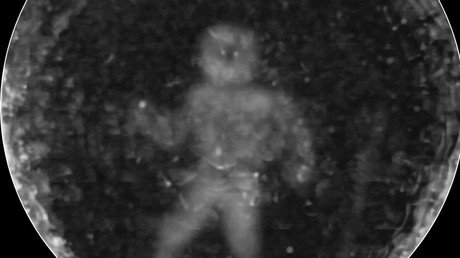Ravens capable of imagining being spied on – study

An experiment has proven that ravens can imagine being spied on and adapt their behaviour accordingly showing an ability to engage in abstract thinking, previously attributed exclusively to humans and apes.
Ravens have an understanding of what could be going on in another raven’s mind, a study carried out by a group of Austrian and American scientists and published in the Nature Communication journal suggests. The birds are particularly capable of imagining being watched which comes in handy when hiding food.
It materialized that ravens, believed to be one of the most intelligent birds as it is, pay particular attention to the hiding process if there’s any suspicion that another bird might be present.
The scientists watched over 10 ravens that had been raised in captivity over six months. The birds were kept in separate rooms and could monitor each other through windows that initially had not been covered. The next step was covering the windows with cloth and leaving a peephole that could be closed or opened.
Ravens demonstrated extra carefulness while finding a place to hide their treats only when a peephole was open and they knew that other birds may be watching them.
“Ravens... take into account the visual access of others, even when they cannot see a conspecific,” the study states.
Such a phenomenon is what psychologists call Theory of Mind. Previously found only in human and apes, it allows an individual to see things from someone else’s point of view.
“Our results suggest that ravens can generalize from their own perceptual experience to infer the possibility of being seen,” it also says.
Previous tests with chimpanzees set scientists thinking that animals can understand what others are seeing based on eye movements and other behavioral indicators. Ravens, however, have shown that they are capable of building mental abstractions without what scientists call “gaze cues”.
“These findings confirm and unite previous work, providing strong evidence that ravens are more than mere behaviour-readers,” the study concludes.













